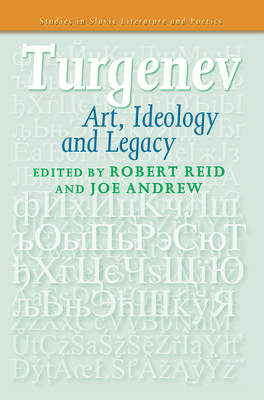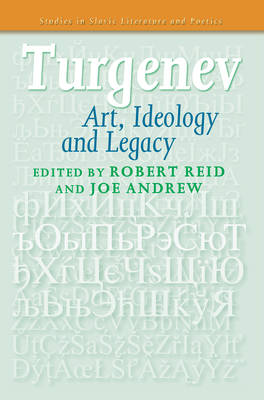
- Afhalen na 1 uur in een winkel met voorraad
- Gratis thuislevering in België vanaf € 30
- Ruim aanbod met 7 miljoen producten
- Afhalen na 1 uur in een winkel met voorraad
- Gratis thuislevering in België vanaf € 30
- Ruim aanbod met 7 miljoen producten
Zoeken
Turgenev
Art, Ideology and Legacy
€ 178,95
+ 178 punten
Omschrijving
Turgenev is in many ways the most enigmatic of the great nineteenth-century Russian writers. A realist, he was nevertheless drawn towards symbolism and the supernatural in his later career. Renowned for his authentic depictions of Russian life, he spent long periods in Europe and was more Western in outlook than many of his contemporaries. Though he stood aloof from politics, the major political issues of nineteenth-century Russia are central to his fiction. Interest in Turgenev remains strong in the twenty-first century, sustained by the amenability of his work to contemporary critical approaches and also by a recognition of the continuing relevance of his perspective on the perennial complexities of Russia's relations with Europe. This volume provides ample evidence of this interest. The chapters which comprise it are written by specialists on the writer and cover many aspects of Turgenev's creativity from his artistic method to such issues as the Jewish Question and Europe. It also examines his cultural legacy - in film and recent popular re-writes of his novels - as well as his influence on writers as diverse as Rozanov and Robert Dessaix. This work will be of interest to students, postgraduates and specialists in the field of Russian literary culture.
Specificaties
Betrokkenen
- Uitgeverij:
Inhoud
- Aantal bladzijden:
- 358
- Taal:
- Engels
- Reeks:
- Reeksnummer:
- nr. 56
Eigenschappen
- Productcode (EAN):
- 9789042031470
- Verschijningsdatum:
- 1/01/2010
- Uitvoering:
- Paperback
- Formaat:
- Trade paperback (VS)
- Afmetingen:
- 155 mm x 234 mm
- Gewicht:
- 498 g

Alleen bij Standaard Boekhandel
+ 178 punten op je klantenkaart van Standaard Boekhandel
Beoordelingen
We publiceren alleen reviews die voldoen aan de voorwaarden voor reviews. Bekijk onze voorwaarden voor reviews.







